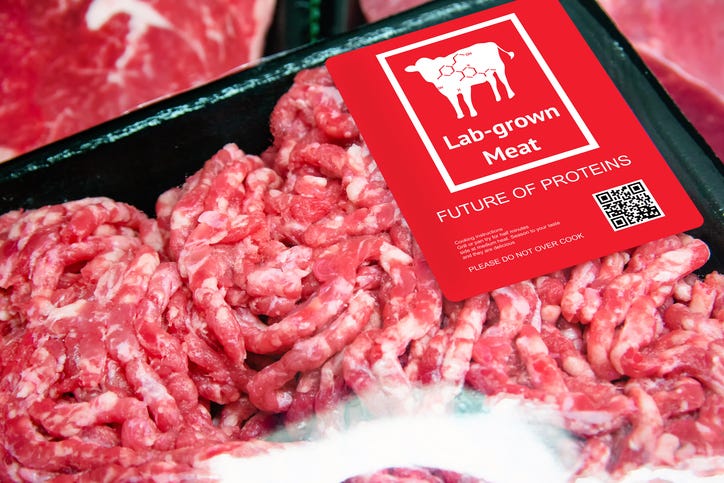
LANSING (WWJ) -- A requirement to label lab-grown meat has cleared the Michigan House.
Saying that the public deserves to know what they're buying, State Representative Jerry Neyer (R-Shepherd) is pleased that House Bill 4076 — which would require synthetically lab-grown meat to be disclosed on a clear and obvious label — passed easily, 99% to 7% with bipartisan support.
Neyer said real meat comes from livestock, and if a product for sale at the grocery store contains 0% meat, that needs to be on the label.
In an interview with WWJ Newsradio 950's Ryan Wrecker, Neyer said this plan is about transparency and common sense.
"We've had incidences in the past; there were other products that have used the reputation of other goods to make their name. And so I didn't want to give this new product an opportunity to take advantage of somebody else's hard work," said Neyer.
Nearly two years ago, U.S. regulators approved the sale of lab-grown chicken by two startups in California. While lab-grown meat is not currently available in any U.S. grocery stores, scientists continue to research the synthetically grown products – increasing the likelihood that consumers may soon see the items on grocery shelves.
"We want to be out there making the noise now, before the product gets to market there," said Neyer. "The dairy industry dealt with this issue for several years, where these oat beverages and soy beverages were using the label 'milk' and the FDA chose not to enforce the law that was already on the books. And now it's finally getting enforced where you don't see 'oat milk' or you don't see 'soy milk'. on the labels."
The bill now moves on to the Michigan Senate.
While Neyer expects this legislation to succeed in Michigan, he said this issue should be addressed on a federal level.
"Ultimately, it's probably come down to a USDA or FDA taking this up and requiring it nationally, because you just can't have labeling going by state by state. It's rather cumbersome," Neyer said.
And with the support of Michigan and other states, Neyer this could help move transparency in food labeling forward.
